Like many RVers, when we chose full-time RVing, we did so to live more sustainably. For us, it made just made sense from multiple perspectives — energy, financial, and environmental. Now, after traveling for over 12 years, we’ve learned a lot. Just like we hoped, living smaller allows us to save a ton of energy and save money on utilities. But we’re way better at it now than we were at the start. A big reason? Some not-so-obvious RV energy savers.
These RV energy savers don’t just work for us. They’ll apply to any-sized rig. And they are especially useful if you plan to camp or boondock off-grid — and don’t want to haul around a noisy gas generator. Best of all, they’re not some big selling point of what to buy. These energy savers are a lot more about what to do.
Basic RV Energy Savers for Newbies
Let’s start with some basic off-grid energy savers. If you’re an experienced RVer, you’re likely tracking these already. But for RV newbies, these RV energy savers can be instant game changers.
- Opt for 12-Volt Power. Use 12-volt-DC instead of 120-volt-AC appliances whenever possible. Quite simply, 12-volt will run directly off your battery without needing to power up the inverter.
- Switch Off the Inverter. Turn off your inverter when not running 120-volt-AC appliances. Install an inverter toggle switch next to the door as a visual reminder.
- Cut Off Phantom Power. Turn off and unplug appliances that draw phantom power. Water pumps and water heaters are notorious energy suckers. Test appliances with a “kill a watt” meter to know what is the biggest draw.
- Find Low or No Wattage Alternatives. Avoid using high wattage appliances when off-grid, especially if they heat or cool. Use a pan with a lid to reheat food, griddle to toast bread, and French press/kettle for coffee.
- Cook Outside. Take cooking to the campfire – it’s both fun and will save energy!
- Minimize Screen Time. Let nature fill your soul instead of screen time — enjoy a star filled sky or campfire.
- Put the Sun to Work. Use solar power combined with a DC to DC charger to keep your RV batteries topped off. Learn how to design an RV solar-powered system to meet your energy needs.
- Charge While the Going Is Hot. When your solar RV battery bank is fully charged and the sun is still shining, plug in all of your electronics (e.g., laptops, phones, tablets, cameras, headlamps, etc.) and store all of that extra solar energy!
Seasonal RV Energy Savers
Stay Warm in Winter
Using propane rather than electricity to heat your rig is more efficient. As full-time RVers, we go through about six standard, 20-pound tanks per year. (Around $150 for both cooking and heating annually.) While we like to head to warmer climates for the winter, that’s not always an option. Here are a few tips:
- Choose a sunny campsite for some powerful, passive heating.
- Keep the heat in! RVs lose much of their heat through windows, doors, as well as the floor. Cold winter air flowing underneath your RV can make the floor feel like a freezer! Use AirSkirts RV Insulation underneath to block that cold air flow and place rugs in key areas where you sit or stand. Also, insulate windows with shades or covers, and insulate around any gaps in the door.
- Heat yourself from the inside. Indoor exercises, cozy sweaters, down booties, a warm cup of tea, and your favorite blanket – even a low-wattage heated throw — all help.
- If skiing and snowboarding are not your thing, snowshoeing will warm you up quickly and help you enjoy the season outdoors. Traction devices on your hiking boots will also help you get around safely.
- RV heaters are notoriously loud and inefficient, while Mr. Heater Propane Buddy is silent and can be used to heat a specific room.
- Use a low-wattage mattress warmer plus a down comforter for those really cold nights.
Stay Cooler in the Summer
While we typically head north, coastal, and up in elevation during the summer to stay cool, avoid humidity, and travel without the need for air conditioning, we occasionally spend time in (or traveling through) some very warm areas. These are a few tips to stay cooler:
- Choose a shaded campsite for some natural, passive cooling.
- Close RV shades and cover windows when the full sun is pouring in to avoid a “greenhouse effect.”
- Cook outside with a propane stove or grill so you don’t heat up your RV. Eat easy, cool meals that don’t require much cooking.
- Enjoy a natural breeze outside and stay in the shade as much as possible. If inside, keep air flowing with small personal fans and a ceiling vent fan to draw warm air out.
- Get out on the water in a kayak, go for a swim, or put your chairs half way in the water.
- Cool yourself from the inside out by staying well hydrated.
- At night, use a ceiling vent fan, blowing out, and open only one window by the bed — just one — to concentrate the air flow over the sleeping area.
Saving energy in your RV will make your travels more affordable and enjoyable, no matter what the season!
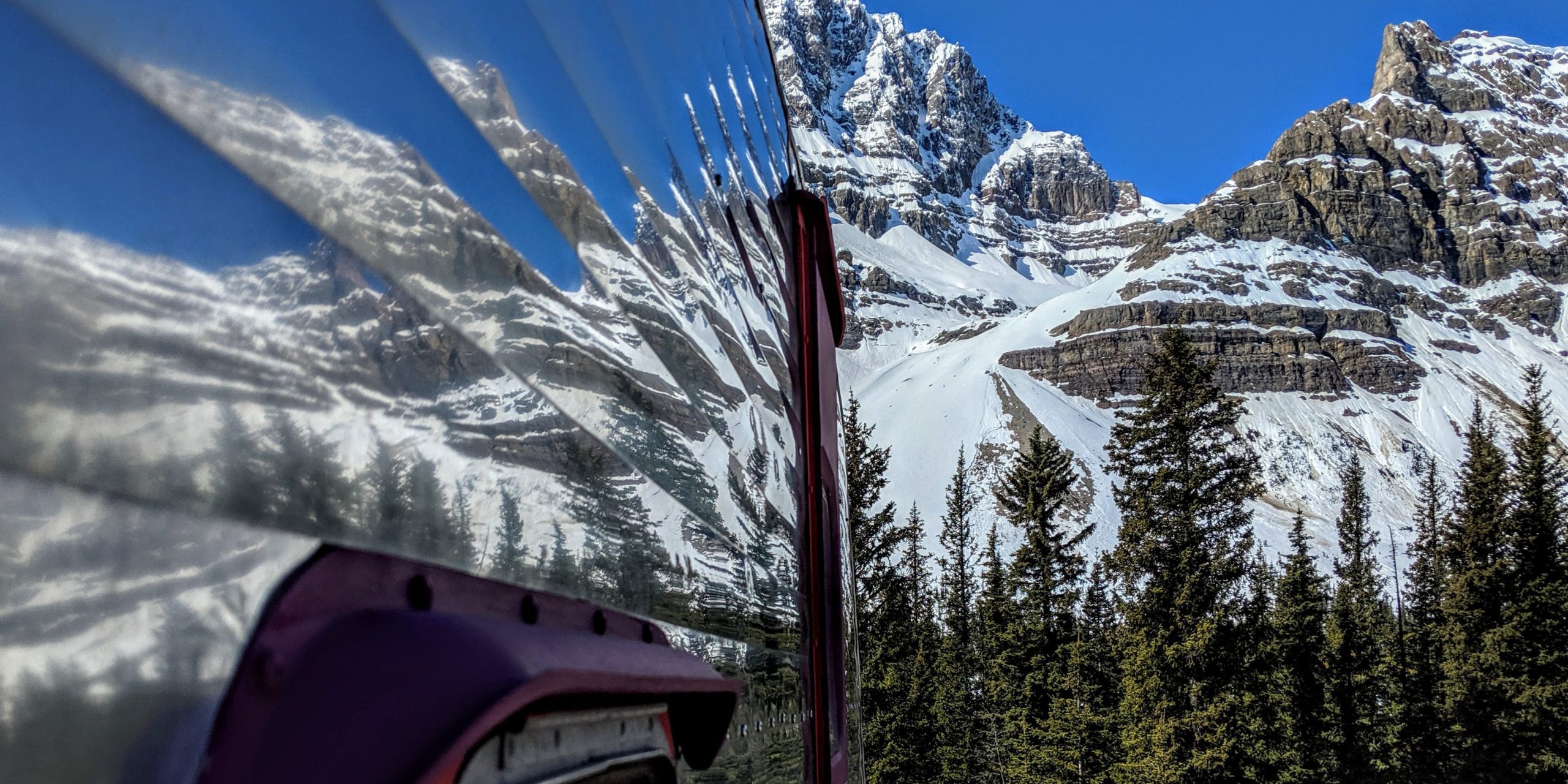
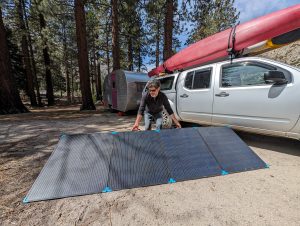
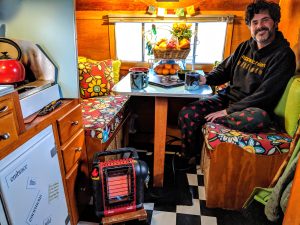
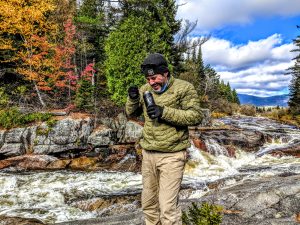
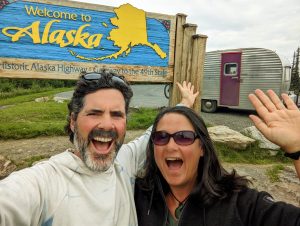
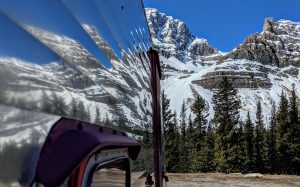
Leave a Reply